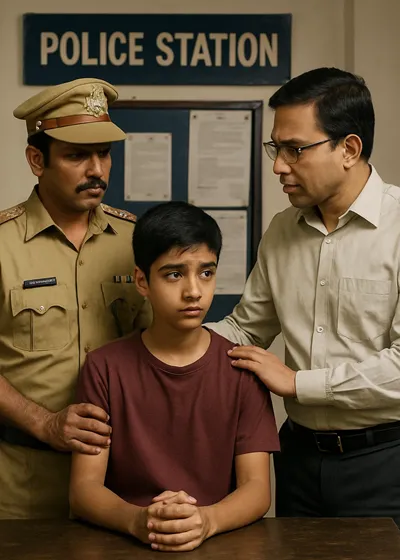
Legal Framework & Major Provisions
The Juvenile Justice (Care and Protection of Children) Act, 2015, is a comprehensive legislation aimed at ensuring the safety, care, and rehabilitation of children in conflict with the law and those in need of care and protection. It emphasizes a child-friendly approach while maintaining accountability for serious offenses.
Key Provisions
- Definition of Juvenile: A person below 18 years of age.
- Categories of Children:
- Children in Conflict with Law: Those who have committed offenses.
- Children in Need of Care and Protection: Those who are abandoned, abused, or neglected.
- Serious Offenses: Children aged 16–18 involved in heinous crimes like murder or rape may be tried as adults after assessment by the Juvenile Justice Board.
- Rehabilitation Over Punishment: Focus on reformative measures rather than punitive actions.
- Specialized Bodies:
- Juvenile Justice Boards (JJBs): Handle cases of children in conflict with the law. (Delhi)
- Child Welfare Committees (CWCs): Address issues related to children in need of care and protection.
- Adoption Regulations: Streamlined processes for adoption, ensuring the best interests of the child.
State-Specific Initiatives
| State/UT | Initiative |
|---|---|
| Punjab | First state to empanel sign language interpreters and special educators under the Juvenile Justice Act, 2015. |
| Nagpur, Maharashtra | Issued a Standard Operating Procedure (SOP) to treat juveniles aged 16 and above as adults in serious cases. |
| Dimapur, Nagaland | Emphasized the protection of privacy for children in conflict with the law, warning against media disclosures. |
Offences and Punishments
The Juvenile Justice (Care and Protection of Children) Act, 2015, classifies offences committed by children into three categories:
- Petty Offences: Offences punishable with a maximum imprisonment of up to 3 years.
- Serious Offences: Offences punishable with imprisonment between 3 to 7 years.
- Heinous Offences: Offences punishable with a minimum imprisonment of 7 years or more.
For children aged 16 to 18 years, if they commit a heinous offence, the Juvenile Justice Board (JJB) assesses their mental and physical capacity to understand the consequences of the offence. Based on this assessment, the Board may decide to treat them as adults and transfer the case to a Sessions Court for trial.
Punishments
- Observation Homes: Temporary facilities for children awaiting trial or placement.
- Special Homes: Institutions for children requiring rehabilitation and reform.
- Aftercare Organizations: Support services for children post-rehabilitation.
- In cases where a child aged 16 to 18 is tried as an adult for a heinous offence, the punishment can be the same as that for an adult committing the same crime. However, the child cannot be sentenced to death or life imprisonment without the possibility of release.
Summary Table
| Offence Category | Age Group | Minimum Punishment | Maximum Punishment | Trial as Adult Possible |
|---|---|---|---|---|
| Petty Offence | All ages | - | Up to 3 years | No |
| Serious Offence | All ages | - | 3 to 7 years | No |
| Heinous Offence | 16–18 yrs | - | 7 years or more | Yes |
FAQs on Juvenile Justice Act, 2015
-
1. What is the Juvenile Justice Act, 2015?
-
A law to address offenses committed by children and to protect those in need of care and protection.
-
2. Who is considered a juvenile under this Act?
-
Anyone below 18 years of age.
-
3. Can a 16-year-old be tried as an adult?
-
Yes, for heinous offenses, after assessment by the Juvenile Justice Board.
-
4. Where are juveniles kept if they commit crimes?
-
In Observation Homes or Special Homes, not in regular jails.
-
5. What is the role of the Juvenile Justice Board?
-
To assess and adjudicate cases involving children in conflict with the law.
-
6. How are children in need of care and protection handled?
-
They are placed under the care of Child Welfare Committees for rehabilitation and care.
-
7. What is the adoption process under this Act?
-
Children who are orphaned, abandoned, or surrendered can be adopted through a legal process ensuring their best interests.
-
8. Are there provisions for inter-country adoption?
-
Yes, under the guidelines of the Central Adoption Resource Authority (CARA).
-
9. How does the Act ensure child rights?
-
By providing a child-friendly legal framework and focusing on rehabilitation.
-
10. Is the Act applicable across India?
-
Yes, it is a central law applicable throughout the country.
Add new comment